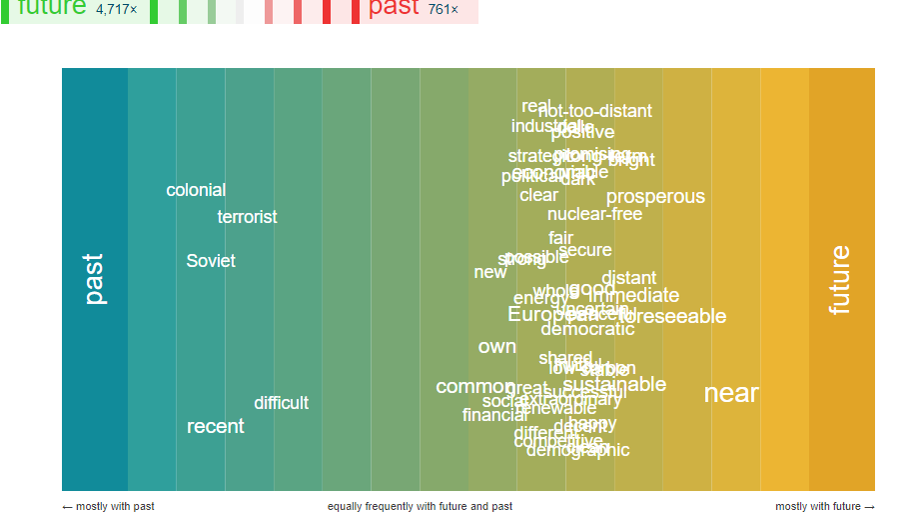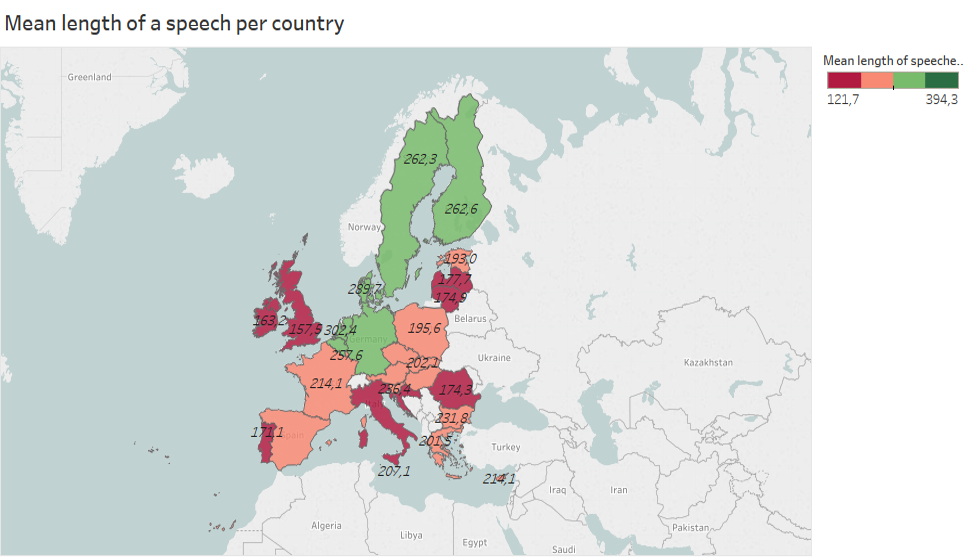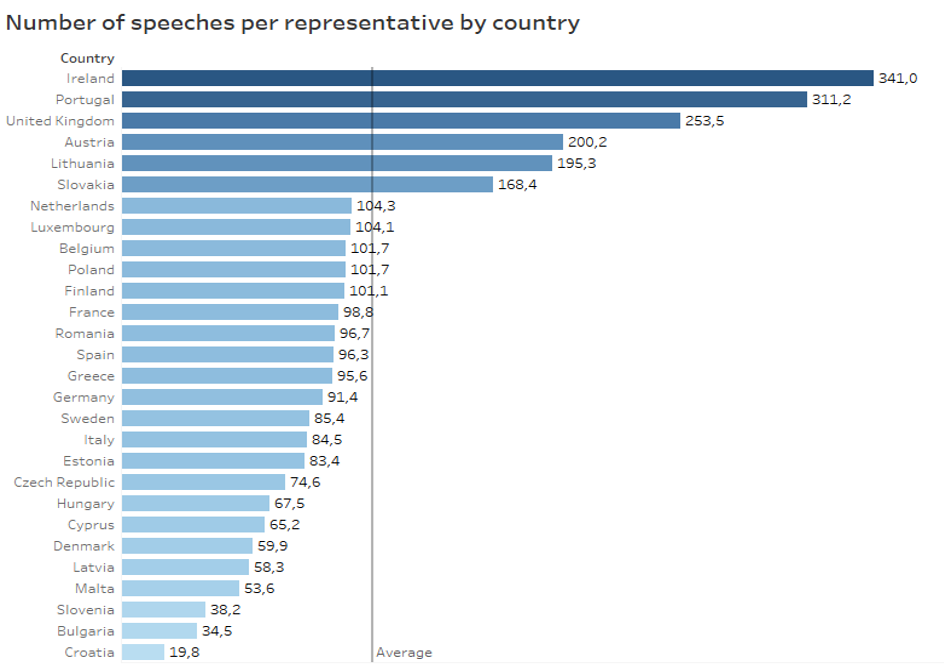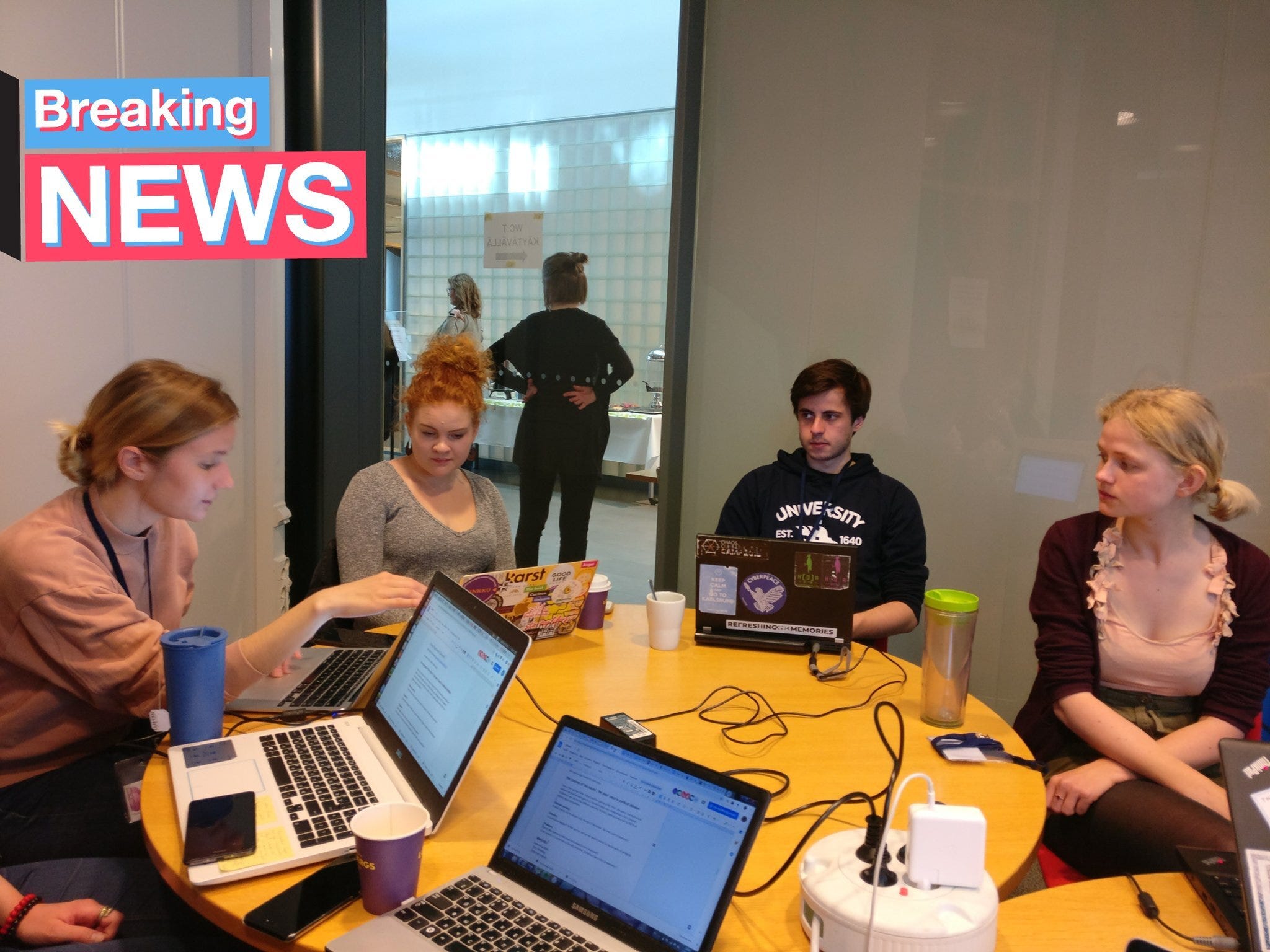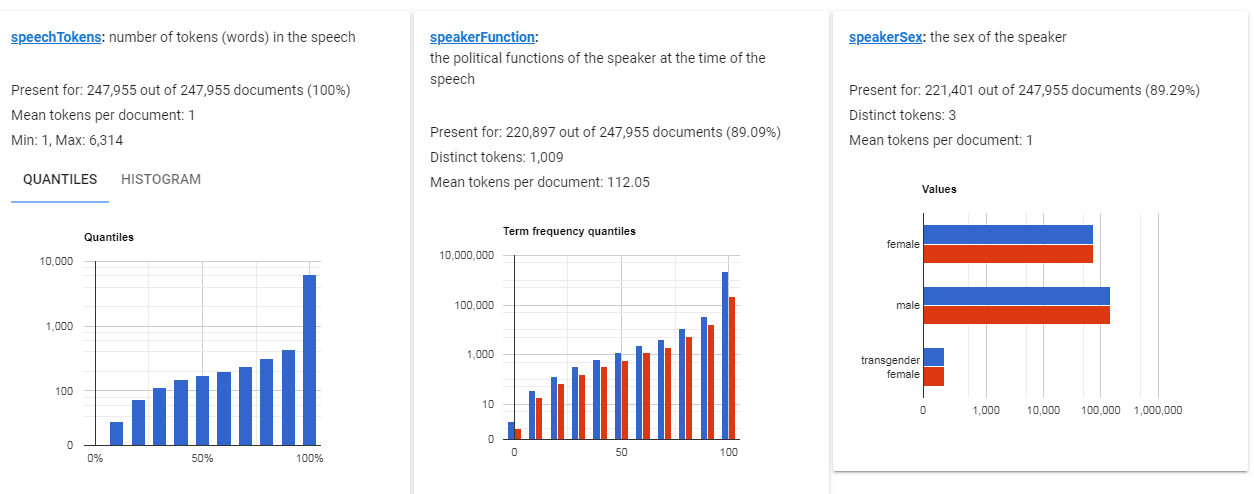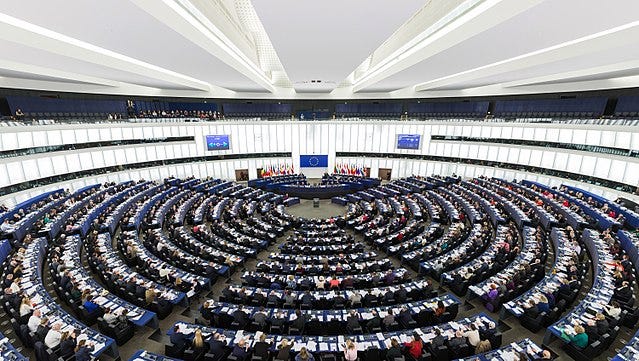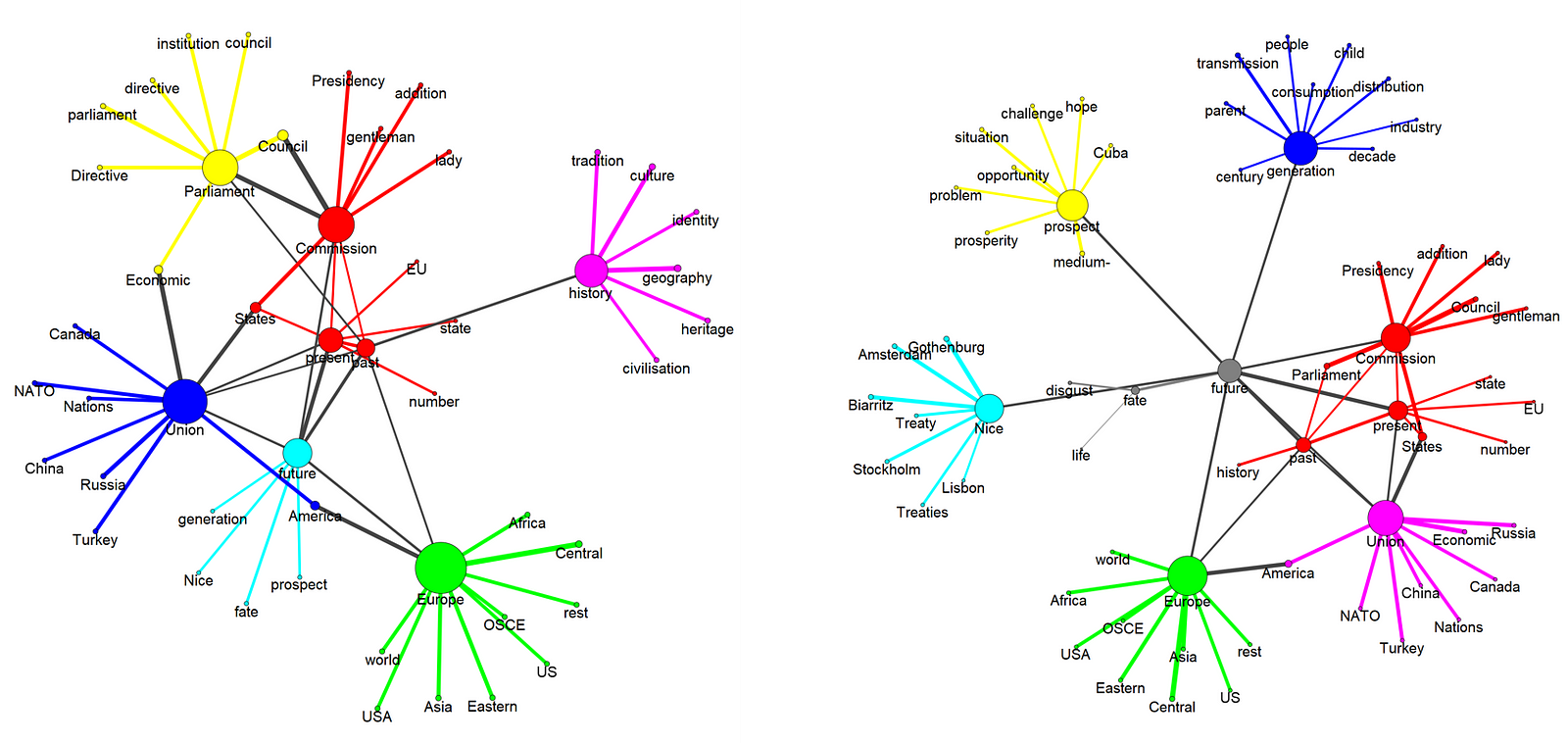“Let’s think the unthinkable, let’s do the undoable. Let us prepare to grapple with the ineffable itself, and see if we may not eff it after all.”
― Douglas Adams, Dirk Gently’s Holistic Detective Agency
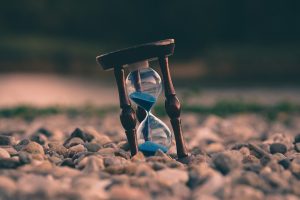
Fundamental questions & a theoretical framework
Having thought about these key issues of our research, we constructed a four-layered model that represents notions about the past and the future.
- The past is “what really happened”, everything that has ever happened up until this point in time. The past is objective — however, we cannot get directly to the past — it is unreachable.
- History is “what we think happened”. History is our tool to talk about the past. When we think about the past, we are creating history. History is subjective — as soon as we talk about the past, we can never be objective. It is also selective — history is only a tiny fraction of the past, of everything that ever happened. History is a narrative about the past influenced by morals, ideology, politics and ideas. History can be both concrete (“historical facts”) and abstract (theories, ideologies, etc.)
- Political discourse is “what we talk should have happened” and “what we talk should happen”. It is even more subjective and selective. It is, amongst other things, the way we talk and express ideas about the past and future.
3.1. Regarding the past, political discourse on the one hand draws and builds on our idea of the past, what we call “our history”. One’s ideas of the past influence and inform one’s political discourse. On the other hand, political discourse also influences other people’s ideas of the past, their view of history.
3.2. Regarding the future, political discourse builds on history to construct and envision a specific idea of the future.
4. The future is “what we think, plan, hope and fear will happen”. It is everything that could ever happen from this point in time onwards. It is also subjective and selective. The future is a concept: a narrative we construct about the thihgs that will happen, influenced by our morals, ideologies, politics and ideas. Just like history allows us to construct countless different narratives about the past, talking about the future offers endless different versions that can be proposed.
Although we speak about the past and the future, we stay at present therefore our narrative is framed by the context — in our case, political.
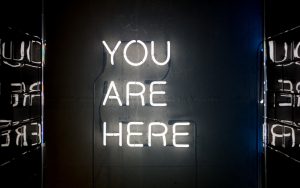
There also would be various connections between the past and the future: the past might be something great or disastrous and we might avoid or repeat it. According to this, the ideas about the relations between the past and the future could be the following:
- We should learn on mistakes on the past in order to avoid them in future.
- We should not repeat out experience from the past.
- We should stay on the way we stood for years.
- We should restore our past we lost in future.

Some findings from the corpus of speeches
We also did some analysis of the corpus in order to find which words MPs use while speaking about the past and the future.
The notions related with the past are, for example, knowledge, recovery, culture, post-Communism and such notions as principle, prospect, strategy, situation are connected with the future. There are also some ideas that lie between tha past and the future.
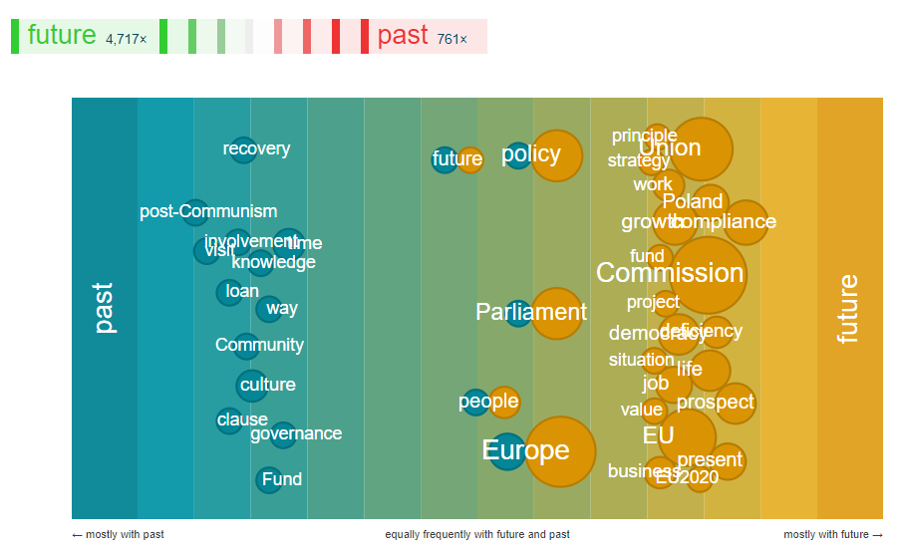
The verb map shows what can we do while speaking about the past and the future.
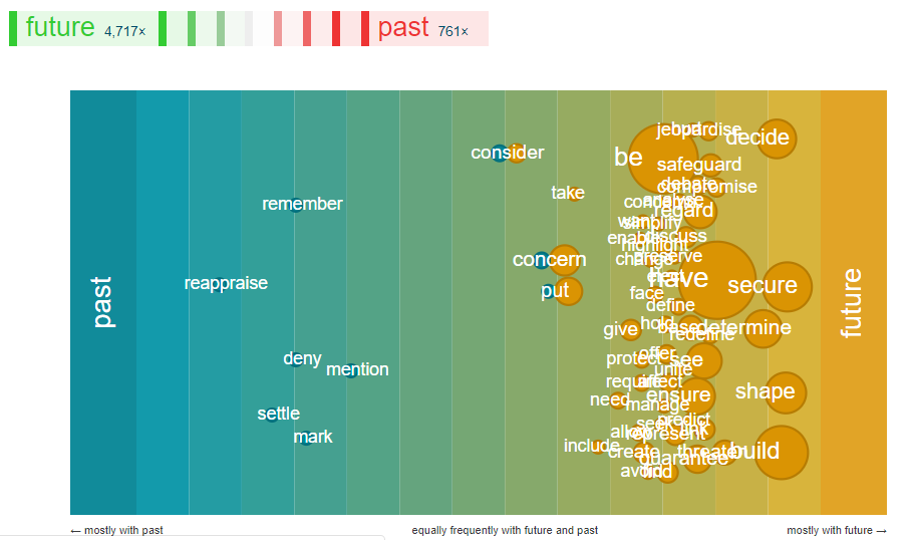
The last image illustrates the most common adjectives in the speeches about the past and the future.
